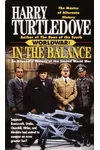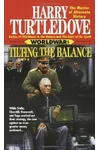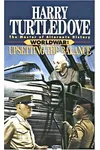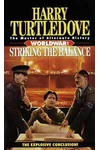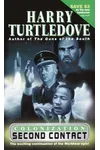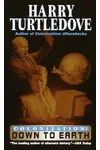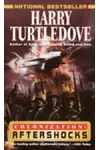Step into the thrilling world of Worldwar, where World War II gets a wild sci-fi twist with an alien invasion! Harry Turtledove’s gripping alternative history saga drops reptilian extraterrestrials, known as the Race, into the chaos of 1942, forcing humanity’s warring nations to unite against a common foe. With a sprawling cast and meticulous historical detail, this series blends military strategy, cultural clashes, and speculative fiction into an unforgettable ride.
Imagine tanks rolling through Europe, Spitfires dogfighting over Britain, and then—bam!—alien ships descend, armed with tech decades ahead. Turtledove, dubbed the 'Master of Alternate History,' crafts a narrative that’s as thought-provoking as it is action-packed, exploring how humans and aliens adapt to a world turned upside down.
How Worldwar Began
Harry Turtledove, a historian with a Ph.D. in Byzantine history, launched the Worldwar series in 1994 with *In the Balance*. His love for historical what-ifs and pulp sci-fi inspired a bold premise: what if aliens invaded during humanity’s darkest hour? Turtledove’s knack for blending rigorous research with imaginative storytelling set the stage for an eight-book saga that spans from 1942 to the 21st century, capturing the chaos and resilience of a world under siege.
The Heart of Worldwar
The series kicks off with the *Worldwar* tetralogy: *In the Balance* (1994), *Tilting the Balance* (1995), *Upsetting the Balance* (1996), and *Striking the Balance* (1996). In *In the Balance*, the Race lands expecting medieval knights but finds industrialized nations locked in global conflict. The aliens’ outdated intel—based on a 12th-century probe—leads to fierce battles as humans leverage their adaptability. The *Colonization* trilogy (*Second Contact*, *Down to Earth*, *Aftershocks*) shifts to the 1960s, exploring an uneasy truce and cultural tensions, while *Homeward Bound* fast-forwards to the future, tying up the saga’s sprawling threads.
Worldwar shines through its themes of adaptation and cultural clash. The Race, rigid and reptilian, struggles to understand human concepts like family or rapid innovation, while humans grapple with the aliens’ imperialist mindset, echoing 19th-century colonialism. Turtledove’s multi-perspective storytelling—following soldiers, scientists, and aliens alike—grounds the fantastical in gritty realism. From a German tank commander questioning his loyalties to a Chinese peasant rising as a resistance leader, the series weaves personal growth with global stakes.
Why Worldwar Resonates
Worldwar’s blend of historical accuracy and sci-fi audacity has earned it a cult following and a 1996 Sidewise Award nomination for Alternate History. Its exploration of unlikely alliances—Axis and Allies teaming up—mirrors real-world diplomacy under pressure, resonating with fans of both military history and speculative fiction. Turtledove’s ability to humanize both sides, even the alien invaders, adds depth, making readers ponder the nature of conflict and coexistence.
The series’ legacy lies in its bold reimagining of a pivotal era, pushing alternate history into the mainstream. It’s a testament to Turtledove’s skill that fans still debate how humanity might fare against such odds, keeping Worldwar a vibrant topic in sci-fi and history circles.
- Publication Years: 1994–2004
- Number of Books: Eight (four in *Worldwar* tetralogy, three in *Colonization*, one epilogue)
- Awards: Nominated for Sidewise Award for Alternate History, 1996
Dive into *In the Balance* and explore Worldwar’s epic clash of history and sci-fi—your next binge-read awaits!
